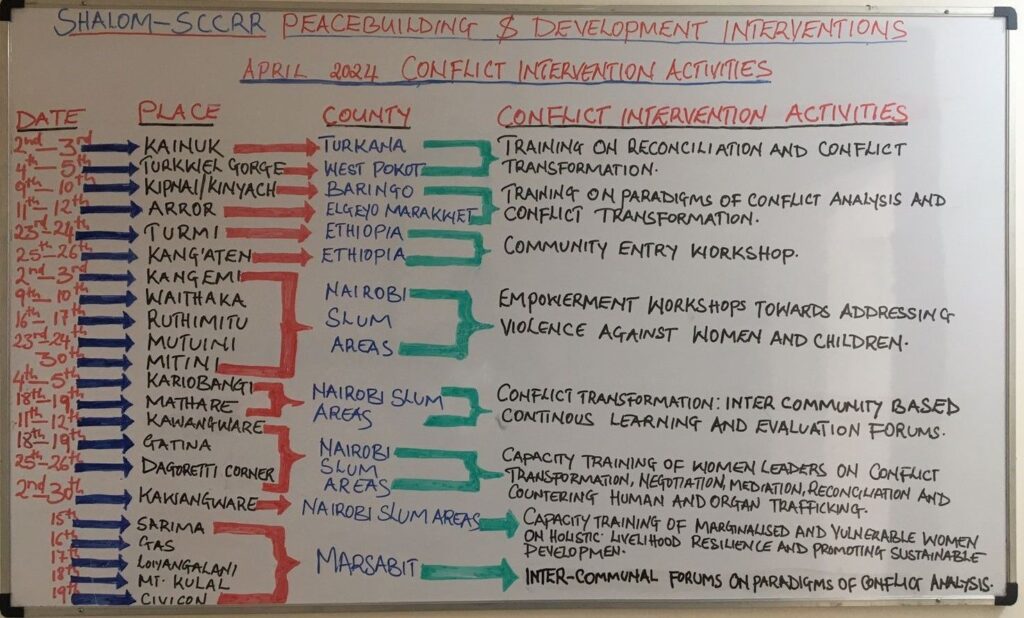By Elizabeth Atieno
In the last three years, Shalom has been involved in training of various Community Opinion Shapers within Kibera Slum on different approaches to managing conflicts. These sessions have been geared towards equipping community leaders with analytical skills needed to handle various conflict situations. It was thus important to gauge the extent of the participants’ application of the knowledge acquired through the training sessions. The trainings culminated into drawing of an Action Plan that sought to engage various stakeholders/opinion shapers in an inter-ethnic dialogue between Kikuyus and Luos. With the General Elections around the corner, in 2017, ethnic tensions are bound to rise, and increased ethnic polarization likely to be witnessed.

The team leader of Kibera Women Leaders Group, Elizabeth Sakwa leading the group session on inter-ethnic dialogue.
On the 3rd of July, 2016, the Kibera Women Group initiated a process of inter-ethnic dialogue between the Kikuyu and Luo community members from various villages in Kibera. The community dialogue session was amongst various community members drawn from Laini saba, Lindi, Soweto and Mashimoni villages of Kibera. The members comprised of business men and women, teachers, and other respectable persons of good reputation within the community. The essence of having the business people as part of the dialogue team is that they are strategically positioned in early warning since their business spots are situated at the heart of the conflict hotspots in Kibera, for example O.D.M; a business spot named after the Orange Democratic Movement party in Kenya. Teachers on the other hand interact with majority of the population.
The preliminaries of the dialogue session were marked by a review of the Conflict Early Warning Signs in Kibera. The two observable signs as reported by the participants include:
- An increase in the number of small tribal groupings gathered by the roadside;
- Reports of the youth secretly purchasing pangas and keeping them in their houses.
From the conversation amongst the participants it unanimously emerged that there are four contentious spots in Kibera where dialogue amongst other peace efforts should be initiated. The four hot spots are: Laini Saba, Gatwekera, Kiandaa, and Olympic.

On the far left is Judith (SCCRR Program Officer) participating in the inter-ethnic dialogue session.
The dialogue session then involved an exploration of community concerns and burning issues. They then narrowed it down to matters of utmost urgency with the upcoming General Elections. These issues became the agenda for deliberation throughout the dialogue session. Major highlights of the discussion focused on the following thematic areas:
- There needs to be adequate peace forum to educate women, youth and men;
- Unequal distribution of resources- For instance, National Youth Service (NYS) job placement in Kibera has strategically been ethnicized;
- There are insufficient youth empowerment programs to help curb youth inactivity and increased crime rate;
- Police brutality and bias in handling persons from certain ethnic communities increasingly being experienced;
- Citizens lack of trust in the Government;
- Cartels supplying alcohol to the youth and using them to cause havoc.
The stakeholders present in the dialogue session committed to strengthening communication and building relationships with various ethnic communities living in the villages of Kibera. They also set out to strategize on how to reach to the hotspot areas mentioned in Kibera such as Laini Saba, Katwekera, Kiandaa, and Olympic respectively.

